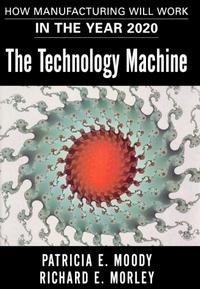How will autonomous agents, emergent systems, and chaos theory change the way we live and work in the twenty-first century? As today"s manufacturing and production systems grow increasingly complex, tomorrow"s science of complexity will produce paradoxically simple solutions, argue technology experts Patricia Moody and Richard Morley in this astonishing vision of the year 2020.
Containing both cutting-edge insights and simple truths that provide a roadmap to the future of business -- and illustrated by case examples from such companies as Motorola, Honda, GM, Solectron, Intel, Silicon Graphics, Modicon, Flavors, NeXT, Japanese Railway, and Andover Controls -- The Technology Machine challenges readers to understand the spirit and core drivers of growth: technology, knowledge, and individual excellence.
By combining rigorous research with their extensive experience with technology advances that have changed industry, Moody and Morley are able to supply simple guidelines for future growthand detail their keen vision of future systems, leaders, and workers. They isolate the three bad business habits at the root of manufacturing problems today -- shortsightedness, restrictive structures, and unbalanced improvement fads -- show how to breakthem, and supply four infallible predictors of the types of breakthrough technologies that will come to dominate the world of the future. In that world, customers and suppliers are linked by real-time, online systems; business is driven by customer-designed, point-of-consumption replication of product; and a wide gap grows between "The Island of Excellence" organization of the future -- with its holistic approach, including two-year apprenticeships, uniforms, and morning exercises -- and "The Others," the non-elite, sweatshop-like, breakeven companies of the past. The book is eloquent, original, and essential reading for managers in every area of business and industry. Это и многое другое вы найдете в книге The Technology Machine: How Manufacturing Will Work in the Year 2020 (Patricia E. Moody, Richard E. Morley)
